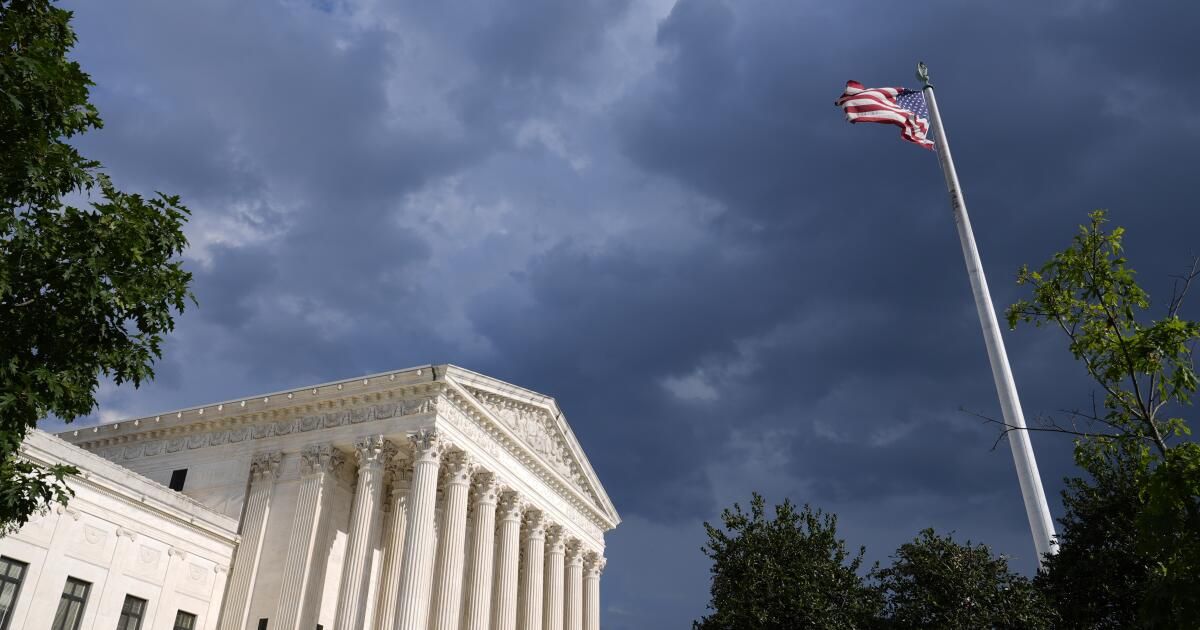The Supreme Court on Wednesday put on hold a plan by President Biden to reduce monthly student loan payments for millions of borrowers and cancel loans after they have been paid for 20 years.
In a brief order with no dissent, the justices rejected an emergency appeal by the administration and said they would await a new ruling from a U.S. appeals court in St. Louis that blocked Biden’s plan from taking effect.
“The court expects the appellate court to issue its decision in a timely manner,” the order said.
The decision is at least a temporary setback for the administration and suggests that conservatives on the court remain skeptical of Biden’s claim that the president has the authority to reduce outstanding student debt by hundreds of billions of dollars.
Republican attorneys general from Missouri and 10 other states sued to block Biden's latest plan, arguing it was extraordinarily expensive and went beyond what the law allowed.
In June, district judges in Kansas and Missouri granted them rulings. In early August, the Eighth Circuit Court in St. Louis issued a nationwide order barring the education secretary from taking any further action to “forgive approximately $475 billion in federal student loan debt.”
Two weeks ago, Attorney General Elizabeth Prelogar urged the high court to lift that order or limit its scope.
He said policies adopted by the Department of Education adjust borrowers’ payments based on their income and allow for loan forgiveness after 20 years. He said these provisions have been part of the Higher Education Act for decades.
But the judges decided to leave the order in force nationwide for now.
Last year, the court, in a 6-3 ruling, struck down a Biden plan to forgive millions in student loans in response to the COVID-19 pandemic.
The administration had then relied on a law passed at the time of the Iraq war that authorized education officials to “forgive or modify” loans for people affected by war or a national emergency.
The judges said Congress had failed to authorize a “massive debt cancellation program” that was estimated to cost the government $430 billion.
Disappointed but firm, Biden said he would pursue other education laws that would allow him to reduce or forgive outstanding loans for borrowers who were in trouble.
In April, the White House announced a new set of student debt relief plans that would save about 30 million borrowers billions of dollars in total.
One of those programs, called SAVE, would reduce payments for 8 million borrowers, leaving 4.5 million of them with a monthly payment of $0. It was originally projected to cost the government about $180 billion, but the total has since grown because tens of thousands of other loans were included.
Although the revised plan reduced payments rather than canceling loans, it would cost the government even more because it would extend aid to many more borrowers.
“The Supreme Court tried to stop me from relieving student debt, but they didn’t stop me,” Biden said at a rally in May. “I’ve relieved student debt for over 5 million Americans. I’m going to keep doing it.”
A coalition of 11 Republican state attorneys general filed a lawsuit, alleging that Biden had again overstepped his authority. And in late June, federal judges in Kansas and Missouri, both appointed by Obama, blocked different parts of the Education Department’s new programs.
“The SAVE Plan is a transformative expansion of regulatory authority” and would cost the government $475 billion over 10 years, said U.S. District Judge Daniel Crabtree in Kansas City.












